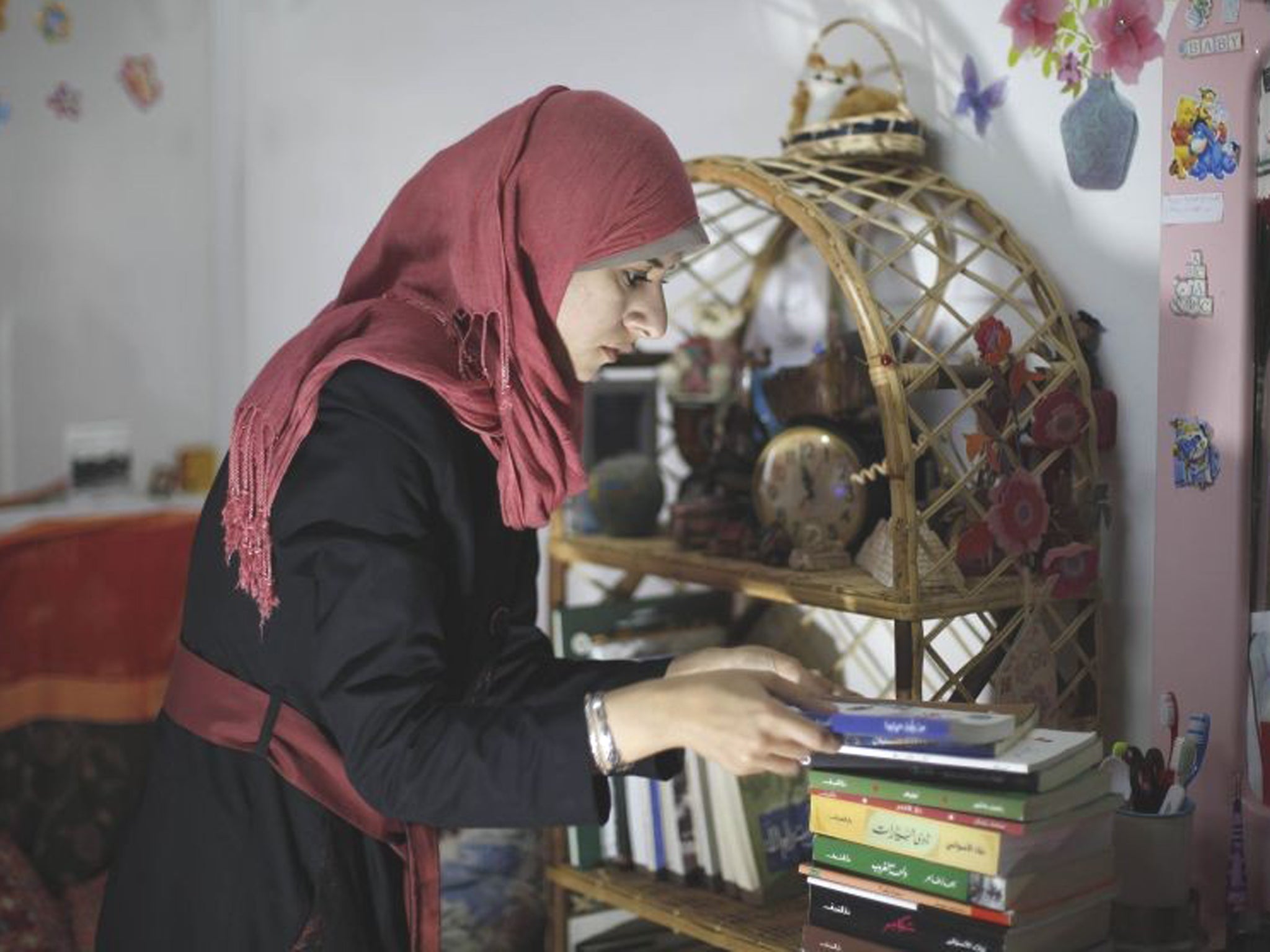A move in the right direction? After years of restricting women's rights Hamas hires Isra Al-Modallal as its first female spokesperson

Your support helps us to tell the story
From reproductive rights to climate change to Big Tech, The Independent is on the ground when the story is developing. Whether it's investigating the financials of Elon Musk's pro-Trump PAC or producing our latest documentary, 'The A Word', which shines a light on the American women fighting for reproductive rights, we know how important it is to parse out the facts from the messaging.
At such a critical moment in US history, we need reporters on the ground. Your donation allows us to keep sending journalists to speak to both sides of the story.
The Independent is trusted by Americans across the entire political spectrum. And unlike many other quality news outlets, we choose not to lock Americans out of our reporting and analysis with paywalls. We believe quality journalism should be available to everyone, paid for by those who can afford it.
Your support makes all the difference.During her teenage years, Isra Al-Modallal was a schoolgirl in Yorkshire. She travelled from her home in Bradford, which she shared with her older brother, to Grange Technology College, two miles outside the city centre.
Still just 23, she is now arranging her desk in a very different role as the first female spokesperson for Hamas, the government of the Gaza Strip which is still considered by the US and the EU to be a terrorist organisation.
The appointment, announced last week, has drawn attention to gender politics in the region and attempts by Gaza’s conservative Islamist rulers to present a friendlier, more tech-savvy and – in the case of Al-Modallal, who lives with her four-year-old daughter in the Rafah refugee camp – more female face.
Al-Modallal, who was born in Egypt and raised in Gaza, will deal with Western media using an accent influenced by her five years in Bradford. After finishing school there, she returned to Gaza to study journalism at the Islamic University before working as a TV reporter.
She is notably not a member of Hamas, wears a basic headscarf and, unlike her new colleagues, does not have a photo of Gaza’s Prime Minister Ismail Haniyeh. Her shelves include a book of American history alongside her Koran, the Associated Press reports. According to Reuters, she is even known to shake the hands of men.
For all her tech-savviness, however, Al-Modallal did not respond to messages sent via Twitter yesterday, where she has more than 4,600 followers.
Nobody at her old school in Bradford was willing to recall her days there. Women authorities on the region, meanwhile, were divided when asked about the significance of her appointment.
Dr Fatima El Issawi, a research fellow at the London School of Economics (LSE) and analyst of media in the region, said only that: “It serves their image to name a woman for this position given their negative image related to women’s rights and the restrictions they are imposing in Gaza.”
Since Hamas took control in 2007, restrictions have included increasing the pressure on women to cover up and limits on activities such as riding on the backs of motorbikes.
A United Nations aid agency cancelled a marathon in Gaza this year when Hamas ruled that only men could participate.
But Dr Dina Matar, a former foreign correspondent who is now a senior lecturer at the School of Oriental and African Studies, University of London, and wrote the book What It Means to be Palestinian, says: “Women have always been an important part of Hamas. Certainly this is a clever tactic but it’s also not as male-dominated or homogenous as might be perceived.”
As the Associated Press reports, 20 per cent of public servants working for Hamas are women, and Al-Modallal says women in Gaza are making strides in all fields. “Every day, women’s footsteps can be seen advancing more in society,” she said.
Aitemad Muhanna-Matar, who is from the Gaza Strip and leads research into women in politics at the LSE’s Middle East Centre, concedes there is a “conservative line within Hamas”. But she adds: “It wants to show the world it is going through a democratic transition and become more flexible in terms of civil rights.”
Of Al-Modallal, she concludes on a positive note. “What I hear her about her shows me that she has a political view and is an independent woman who won’t accept being instrumentalised by anyone, Hamas or not,” Muhanna-Matar says. “This is something to be happy about.”
Join our commenting forum
Join thought-provoking conversations, follow other Independent readers and see their replies
0Comments